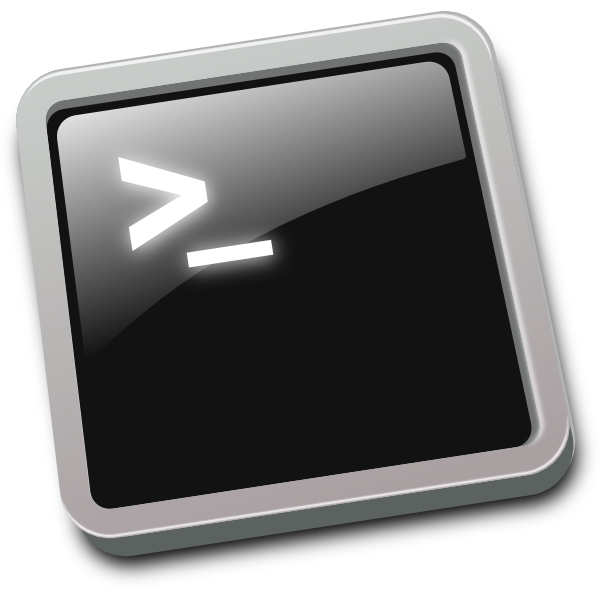Overview
All EC2 instance types have the same price,and usage charges are USD 0.025/hour. This is a repackaged open source software product wherein additional charges apply for support and maintenance by Fleximg. QEMU (Quick Emulator) is a free and open-source emulator and virtual machine monitor that allows software to run on different hardware architectures and operating systems.
QEMU can emulate a variety of architectures including x86, ARM, PowerPC, SPARC, and MIPS. It can also emulate a variety of hardware devices such as network interfaces, storage controllers, graphics cards, and sound cards. This makes it a powerful tool for developers and system administrators to test and debug their software on different platforms.
QEMU can also be used as a virtualization solution, allowing multiple virtual machines to run on a single physical host. This is achieved through a combination of hardware-assisted virtualization (using Intel VT-x or AMD-V) and software emulation. QEMU supports a variety of guest operating systems including Linux, Windows, and various BSD derivatives.
QEMU also provides a user mode emulation, where it can run binaries compiled for different operating systems on a host system. This allows users to run software compiled for different architectures on their current system.
Overall, QEMU is a versatile and powerful tool for emulation, virtualization, and cross-platform development.
Disclaimer: The respective trademarks mentioned in the offering are owned by the respective companies. We do not provide the commercial license of any of these products. use of them does not imply any affiliation or endorsement.
Highlights
- Cross-platform compatibility: QEMU can run on a variety of host operating systems such as Linux, macOS, Windows, and FreeBSD, and can emulate a wide range of guest operating systems, including Linux, Windows, macOS, and many others.
- Processor emulation: QEMU can emulate different types of CPUs, including ARM, x86, PowerPC, and more, allowing it to run operating systems designed for these architectures.
- Hardware emulation: QEMU can also emulate a variety of hardware devices, including network cards, storage devices, USB devices, and graphics cards, which can be useful for testing and development purposes.
Details
Typical total price
$0.035/hour
Pricing
Free trial
- ...
Instance type | Product cost/hour | EC2 cost/hour | Total/hour |
|---|---|---|---|
t2.nano | $0.025 | $0.006 | $0.031 |
t2.micro AWS Free Tier | $0.025 | $0.012 | $0.037 |
t2.small | $0.025 | $0.023 | $0.048 |
t2.medium | $0.025 | $0.046 | $0.071 |
t2.large | $0.025 | $0.093 | $0.118 |
t2.xlarge | $0.025 | $0.186 | $0.211 |
t2.2xlarge | $0.025 | $0.371 | $0.396 |
t3.nano | $0.025 | $0.005 | $0.03 |
t3.micro AWS Free Tier Recommended | $0.025 | $0.01 | $0.035 |
t3.small | $0.025 | $0.021 | $0.046 |
Additional AWS infrastructure costs
Type | Cost |
|---|---|
EBS General Purpose SSD (gp2) volumes | $0.10/per GB/month of provisioned storage |
Vendor refund policy
We do not currently support refunds. The instance can be terminated at anytime to stop incurring charges.
Legal
Vendor terms and conditions
Content disclaimer
Delivery details
64-bit (x86) Amazon Machine Image (AMI)
Amazon Machine Image (AMI)
An AMI is a virtual image that provides the information required to launch an instance. Amazon EC2 (Elastic Compute Cloud) instances are virtual servers on which you can run your applications and workloads, offering varying combinations of CPU, memory, storage, and networking resources. You can launch as many instances from as many different AMIs as you need.
Version release notes
Update to latest
Additional details
Usage instructions
Usage Instructions: Connect to SSH Login using 'ubuntu' user and ssh public key authentication Usage Instructions: To connect to your instance, you will need to use SSH over port 22. You can use the standard AWS method of connecting to an instance as described here:
Step 1: Download the kernel version you want. Step 2: Copy the kernel source code to the working directory and unzip it. The unzip command is tar -zvxf linux-4.19.5.tar.gz. Step 3: Modify the top-level Makefile file of the kernel source code and add the following content at line 841: ifdef CONFIG_RETPOLINE KBUILD_CFLAGS += $(call cc-option,-fcf-protection=none) endif Step 4: Compile the kernel. Enter the kernel source directory and create a compilation script build.sh (Note: change the script file permissions with chmod+x build.sh) #/bin/sh export ARCH=x86 make x86_64_defconfig make menuconfig make -j16 Step 5: Run the script ./build.sh. Select the system support for mounting a ramdisk and set the size of the ramdisk:Device Drivers-->Block devices-->RAM block device support/-->(16) Default number of RAM disks (NEW)-->(262144) Default RAM disk size (kbytes) Step 6: Save the kernel configuration settings as the x86_64_defconfig file, exit the configuration interface, and generate the kernel compilation. A bzImage kernel image file will be generated in the kernel arch/x86/boot directory. Step 7: Download the latest version of buildroot from the official website. Step 8: Copy the buildroot software package to the working directory and unzip it. Step 9: Configure buildroot. Step 10: Compile buildroot. Step 11: Enter the qemu directory and run the following command to start qemu, load the kernel image file, and mount the root file system: qemu-system-x86_64 -smp 2 -m 1024M -kernel ./linux-4.19.5/arch/x86/boot/bzImage -nographic -append "root=/dev/ram0 rw rootfstype=ext4 console=ttyS0 init=/linuxrc" -initrd ./buildroot-2022.02.7/output/images/rootfs.cpio.gz Step 12: After qemu successfully loads the Linux kernel and mounts the root file system, the following prompt will be displayed (Note: system username: root; password: root): Welcome to lsl_linux lsl login:root Password:
Default ports: Please allow SSH port 22 to limited IPs for access.
Resources
Vendor resources
Support
Vendor support
support@fleximg.net For support and maintenance issues related to all AMIs bundled please contact us by email. support@fleximg.net
AWS infrastructure support
AWS Support is a one-on-one, fast-response support channel that is staffed 24x7x365 with experienced and technical support engineers. The service helps customers of all sizes and technical abilities to successfully utilize the products and features provided by Amazon Web Services.
Similar products




